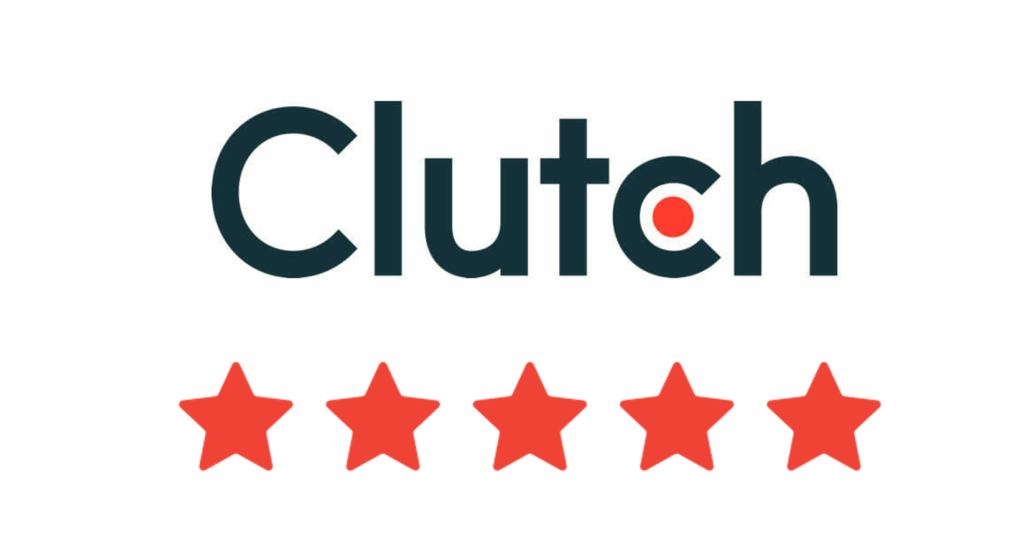Last Updated on 10/04/2025
Search Engine Optimisation (SEO) has become essential to online success. However, with its increasing relevance comes a negative aspect: SEO scams.
SEO scams are the promises that sound great but don’t work.
Imagine you are a business owner who has just received a cold email promising that it will boost your website to the top of search engine results with no effort.
Doesn’t it seem exciting? But in reality, it is not possible.
As the need for SEO services increases, so does the number of cheap Search Engine Optimization scams performed by unethical people or companies.
These scams vary from outdated “black hat” approaches to outright fraudulent services, leaving businesses not only out financially but also at risk of search engine penalties.
So, let’s look for these SEO scams without wasting money and hurting the website.
What is SEO?
SEO stands for search engine optimization, which is both the art and the science of making websites more visible and appealing to search engines such as Google, Bing, and Yahoo.
SEO is optimizing a website or webpage to maximize the amount and quality of traffic it receives from organic search engine results.
So, you must optimize your website for Google. This includes making it easy to understand and full of essential information that people seek. It also helps if other websites connect to yours; it’s similar to creating online friends.
What is not SEO?
SEO is NOT:
- A magic button that provides quick results
- It’s a one-time setup that may need to be remembered
- A particular path to constant top rankings
- A set of permanent rules
But SEO takes patience, continual work, and adaptation. It’s not about using quick remedies or illegal shortcuts like keyword stuffing or link schemes.
Instead, it is a long-term investment in adding value for consumers and search engines.
Results can take weeks or months to appear, and maintaining top ranks needs continuous work. As search engine algorithms develop, SEO strategies must adapt as well.
SEO success requires regular efforts, keeping up with the latest trends, and focusing on providing actual value to users.
What are SEO Scams?
SEO scams are deceptive practices often used by fraudulent SEO consultants and digital marketing agencies to trick customers into paying for SEO services that offer no benefit.
Many scammers continue to market the same outdated strategies to immature businesses, making promises they cannot meet.
These scammers target small companies with low resources, who hesitate to respond once they realize they’ve been deceived.
SEO scammers may harm your rankings, losing your leads and sales.
Standard Features of SEO Scams
1. Vague Pricing & No References are Red Flags
If a company’s pricing is shady or it cannot provide precise cost estimates customized to your specific needs, this is a red flag.
Also, a professional agency should happily provide references or a portfolio. Without references, it is generally not worth doing business with them.
2. They Arrive by Cold Email
SEO scams generally appear as cold emails promising SEO services. These emails often originate from @gmail addresses, making it difficult to relate them to a legitimate firm.
If a business is mentioned on the website, it is generic and does not provide information about the owners, employees, or location.
3. Prioritising Link Construction Over Link Earning
Quality links from trusted websites are necessary since they establish trust with Google. However, be wary of organizations that use deceptive link-building strategies such as purchasing links or excessive link swaps. Google prefers natural, earned links, as should your SEO partner.
4. Recurring Monthly Fees & Unnecessary Work
Most cold emailers seek to charge a recurring fee for their services. While this is lawful for experienced SEO professionals, scammers want to undertake unnecessary work for you.
5. Ignoring Page Speed: A Big No-No
Page speed may not be a direct ranking criterion, but it is essential for a good user experience. If your website is fast (by more than 3 seconds), it is convenient for users and harmful to the company. Your SEO strategist should be focusing on making your website speedier. If they’re not, you’re losing out.
Types of SEO Scams
1. Guaranteed Ranking On Google
Every business owner wants to rank first for their keywords, but the promise to be at the top of Google is the most common scam. You must pick low-volume, niche keywords to avoid intense competition for your website’s terms. Not even Google can promise top rankings,
Google’s statement on the scam is straightforward:
No one can guarantee a #1 ranking on Google.
It’s important to remember that SEO is competitive and requires effort and money. Quick, cheap solutions are typically too good to be true and are likely scams.
2. Offering Instant Results
Genuine SEO is a long-term strategy that needs patience and consistent work. Anyone who promises you’ll get significant outcomes quickly is most likely using unethical “black hat” practices that violate search engine standards.
Any guarantee should always be a red flag, so avoid these fly-by-night companies that promise significant results in three days.
3. Get Backlinks From High-DA Websites
Backlinks (links from other websites to your own) are an SEO ranking factor. Links from trustworthy sites can improve your SEO. However, backlinks from low-quality sites (such as financial fraud websites) might harm your SEO.
According to Google’s John Muller and Gary Illyes, the company not only does not use Moz’s Domain Authority (upper case) in any of its ranking algorithms, but it also does not use anything similar to Domain Authority (lower case) for ranking at all.
Yet people continue to use the Domain Authority measure as a Key Performance Indicator (KPI) for their overall link-building activities.
Also, regarding blog articles on these so-called “high DA” sites, remember that putting content on a website with many other authority pages does not guarantee authority.
So, purchasing “high DA” links from these scammers may temporarily boost your DA score. However, it will not influence the development of any of the organic search channel’s essential KPIs (traffic, revenue, leads, etc.).
4. Supporting PBNs
Private blog networks (PBNs) are a standard black hat link-building strategy. A PBN is a collection of websites that do not provide valuable material. They exist to build links to other websites.
PBNs were explicitly formed to promote useless partnerships deceptively to improve their authority in the eyes of Google; hence, their content is of poor quality. Because of the scraped content on these websites, the information is regarded as below average.
This technique may seem attractive because some high-quality Private Blog Networks operate outside of Google’s radar.
But beware: this method violates Google’s webmaster guidelines and will result in a penalty.
5. Google Partnership
Google does not provide an SEO partner program. Despite what they say, Google has a certification scheme for Google Analytics, Google Ads, and a few other products, but there isn’t one for search engine optimization.
The business may have some certifications for the other Google products, but they are of limited use for SEO work.
If an SEO business promises to have insider links at Google to improve your SEO, it’s most likely not genuine.
The most effective SEO approach sticks to search engine guidelines and standard procedures rather than secret handshakes or insider links. Remember, if everything seems too good to be true, it usually is!
6. More Links Mean Higher Rankings
There needs to be more understanding in the SEO business that more links equal higher rankings. That isn’t correct. When it comes to link building, quality wins quantity.
Initially, Google was attracted to the massive volume of links, which resulted in higher SERP results. However, as Google realized that more connections only sometimes meant higher quality, they developed a new method of analyzing website content and links.
When Google analyses a link, it considers both the connected web page’s content and its overall SERP rating. So. The best way for businesses to gain from linked content is to link to reliable websites that provide high-quality information and a pleasant user experience.
7. Dead-end Doorway Pages
Doorway pages are designed to rank high for specific search keywords and direct viewers to the client’s website.
This method is unethical and prevents the more worthy websites from a spot at the top of the SERPs. At first glance, this SEO approach may appear to be common sense and assured success: more doors, more access, more people, and more sales, but it is far from successful. In reality, this approach is immediately damaging.
Overloading search engine searches with identically prepared and designed web pages linking to the same destination confuses search engine crawlers, decreasing the client’s overall rating.
A website needs more home pages; in fact, one is adequate.
8. The Agency holds Google’s Secrets
Reputable SEO services should focus on proven strategies and approaches rather than promoting their “secret sauce” or unique strategy.
There is no secret formula for understanding or tricking Google’s algorithm. Google’s system is complicated, and they keep most of it under wraps. Anyone who claims to have everything organized is generally not telling the truth.
9. Fake Traffic
Some marketers may try to pitch you on increasing traffic. While some of these attempts may be legitimate, shady individuals may use bots to give the appearance of increased traffic.
Bots do not sign up for newsletters, read articles, or buy anything, so purchasing false traffic is useless.
Traffic is not a key performance indicator (KPI); it is simply a means to an end. While organizations may track online traffic, it is only valid when visitor growth is connected to more significant revenue.
So, despite freelance or in-house marketers tracking traffic, companies focus on income and sales as key performance indicators.
10. Offer to Remove Negative Reviews
First, let’s debunk a common myth in the SEO world: no one can remove negative reviews from Google Business profiles.
Another issue arises if a review is negative, fraudulent, or unfavorable and violates Google’s rules and conditions. However, if it is a regular, genuine, unfavorable review, you cannot remove it because this would disregard the point of online reviews.
Google promotes transparency and confidence in businesses by providing a third-party perspective. Search engines work hard to keep authentic customer reviews so people may see comments on a company’s products and services.
How to Avoid Seo Scams?
So, what can be done to avoid an SEO scam? Here are some top SEO tips.
- Do thorough research
- Beware of unrealistic promises
- Request proof papers and see the portfolio
- Request a detailed proposal
- Verify ethical SEO practices
- Clarify clear objectives and plans
- Contract and payment terms
- Consistent reporting and communication
Besides these, remember that it’s human nature to want to take shortcuts, yet SEO success takes time. Watch out for unrealistic promises.
It all comes down to controlling your expectations, knowing what to look for, and collaborating with a trustworthy digital marketing agency over time to achieve long-term outcomes.
Conclusion
SEO scammers always target companies looking to increase their online presence. These scams can be avoided by remaining aware and watchful. Remember that if anything seems too good to be true, it generally is.
Real SEO requires time and work. Trust your intuition, conduct research, and work with credible specialists who value transparency and achievable goals.
FAQs
Three common SEO scams that even the most knowledgeable individuals may fall for are:
1. Companies providing quick link construction services.
2. Companies claiming to gain 1,000 new visitors per day.
3. Companies claiming to know someone from Google.
Many trustworthy SEO businesses achieve long-term and ethical outcomes through correct optimization, high-quality content development, and acceptable link-building tactics. These companies do not guarantee quick outcomes but prioritize long-term growth, openness, and transparent reporting.
Various techniques exist to identify a scam, the simplest and typical of which is to see if the offer is too good to be true. For example, if a company offers three months or more of SEO services for the price of one, it is most likely a scam.




